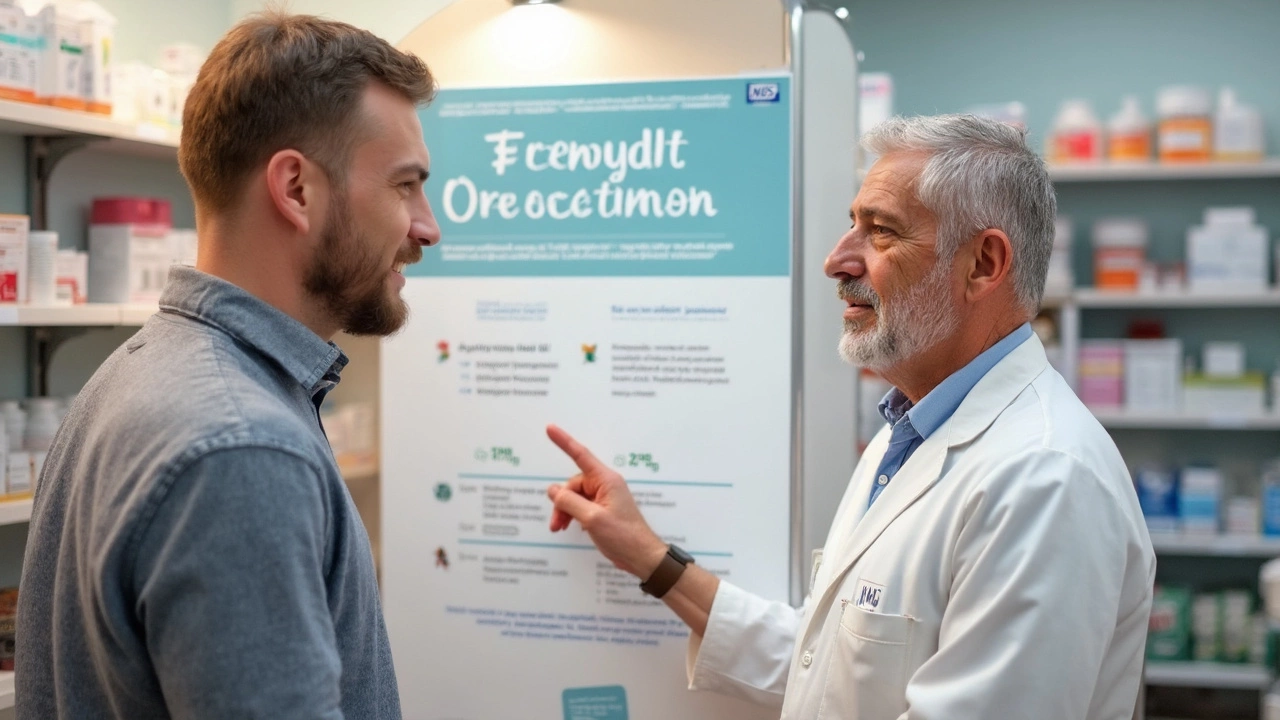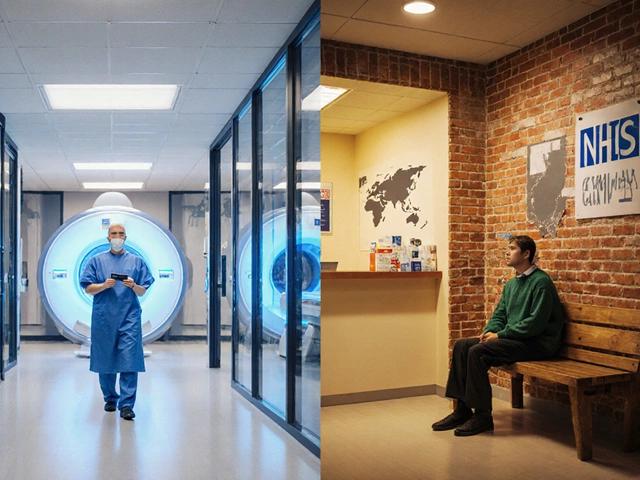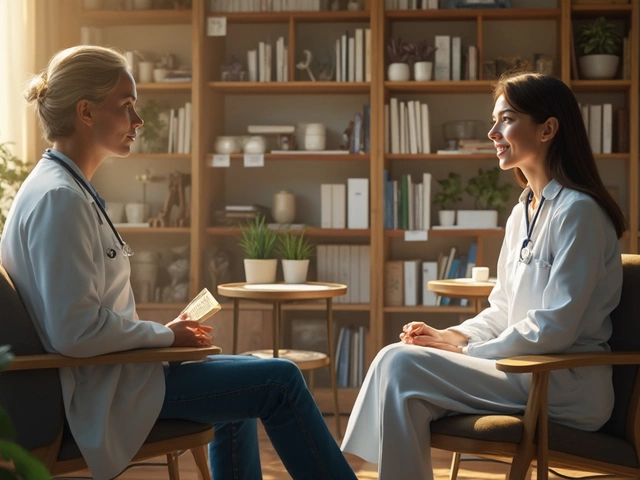Paying for your regular medication can add up fast, and if you’re living with a long-term health issue, those trips to the pharmacy start stinging your bank account. But here’s something that surprises lots of people: certain medical conditions mean you can get prescriptions for free on the NHS. Yes, totally free, and legally so—if you qualify.
This isn’t just for older folks or people on specific benefits. There’s actually an official list of medical conditions that opens the door to free meds, from diabetes (except if it’s managed by diet) to epilepsy. Thing is, not everyone knows how to check if their illness qualifies, or how to actually claim those free prescriptions.
If you’re unsure whether your diagnosis gets you a free pass at the pharmacy counter, or you’re tired of betting with each new prescription, you’re in the right place. I’ll break down which conditions count, how to get proof, and even some lesser-known ways people legally avoid prescription charges. No jargon, no fluffy “contact your GP” runarounds—just what you need to know, right now.
- Who Qualifies for Free Prescriptions?
- The Medical Conditions List: What Counts
- Getting Your Exemption Certificate
- Other Ways to Get Prescriptions Free
- What If Your Condition Changes?
- Tips for Saving on Prescription Costs
Who Qualifies for Free Prescriptions?
Here’s where it gets real: if you’re managing a certain long-term health condition in England, you could get free prescriptions—no matter your age or income. Most folks know about free meds for kids, pensioners, or those on low incomes. But loads of people miss out because they don’t realise their medical condition puts them in the clear.
The NHS actually lists out specific conditions that qualify. It’s not a random doctor’s decision; it’s official. If you have one (or more) of these, you can apply for a medical exemption certificate and show that at the pharmacy.
- Type 1 and Type 2 Diabetes (but only if you need medication—not if you control it by diet alone)
- Epilepsy that needs continuous medication
- A permanent fistula (like a colostomy or ileostomy) requiring surgical dressing every day
- Hypothyroidism (underactive thyroid needing lifelong hormone replacement)
- Any continuing physical disability which means you can't go out without help from someone else
- Certain forms of cancer, or effects from cancer, or cancer treatment
This is just the main list—there are a few more rare conditions too, so always double-check if you’re unsure.
To qualify officially, you need proof—an exemption certificate, sometimes called a ‘MedEx’ card. Getting one isn’t automatic, even if your GP already knows about your condition. You usually fill out a form (FP92A) at your GP surgery, and your doctor has to sign it. Then, you get sent your certificate by post. Flash this at the pharmacy and your prescriptions are free while it’s valid (usually 5 years at a time).
Roughly 850,000 people in England have a medical exemption certificate for prescription costs right now, but NHS England reckons thousands more miss out either through confusion or just not knowing they could claim. Don’t let that be you.
The Medical Conditions List: What Counts
Not every health problem gets you free prescriptions. The NHS has a set list of medical conditions that qualify. It doesn’t matter how many prescriptions you need—if your diagnosis is on this list and you’ve got the right paper (the exemption certificate), you won’t pay at the pharmacy counter.
- Diabetes mellitus – But only if you need medication like insulin or tablets. If you control your diabetes with diet alone, you don’t qualify. That rule frustrates a lot of people, but sadly, that’s how it is right now.
- Epilepsy – As long as you need medicine to help prevent seizures, you’re covered.
- Addison’s disease and other conditions where you need steroid replacement therapy.
- Hypoparathyroidism
- Hypopituitarism
- Permanent fistula that requires ongoing surgical dressing or an appliance (not a one-off matter—you really need it for the long haul).
- Ongoing treatment for cancer (also includes the effects or complications from it or from its treatment).
- Myxoedema (this is when your thyroid is underactive and you need thyroid hormone replacement).
- A rare enzyme deficiency called phenylketonuria.
- A rare blood disorder called diabetes insipidus.
If you want a quick summary, here’s how all these conditions stack up in terms of who gets free prescriptions:
| Condition | Medication Prescription Must-Have? |
|---|---|
| Diabetes mellitus (medicated) | Yes |
| Diabetes insipidus | Yes |
| Epilepsy (medicated) | Yes |
| Addison’s disease | Yes |
| Cancer (active or complications) | Yes |
| Permanent fistula requiring dressings or appliance | Yes |
| Hypoparathyroidism | Yes |
| Hypopituitarism | Yes |
| Phenylketonuria | Yes |
| Myxoedema | Yes |
Surprisingly, some conditions you’d expect—like asthma or high blood pressure—aren’t on the NHS’s list, even if you’re taking medicine for life. If your illness isn’t named above, your best bet is to double check with your GP or visit the NHS website for any updates. Don’t bank on your local pharmacist just waiving fees—they have to follow the rules strictly.
You’ll need to prove your free prescriptions eligibility with the official medical exemption certificate, which comes up next. But if you’re on this list, you’re in a strong position to keep prescription costs off your expenses chart.
Getting Your Exemption Certificate
If you’ve got one of the conditions that qualifies you for free prescriptions, you’ll need an NHS exemption certificate to prove it at the pharmacy. These certificates aren’t handed out automatically—you actually have to ask for one and fill out a form. The good news: it’s not a massive ordeal.
Your GP or hospital doctor gives you the FP92A application form. You fill out your bits, your doctor signs off that you do have a qualifying condition, and then the surgery or clinic sends it off for you. The NHS Business Services Authority is in charge of processing these, and honestly, they’re usually pretty quick.
- Most people get their Medical Exemption Certificate card in the mail within 10 days.
- It’s valid for 5 years (unless your situation changes).
- You’ll need to renew it before it expires—otherwise, you’ll be paying again, and that's just unnecessary.
When you pick up your meds at the pharmacy, just show your card. If you don’t have it yet and your application’s being processed, ask your GP for written confirmation, or keep your prescription receipts—these can help claim back costs if you get charged by accident.
If you ever get a new diagnosis that’s on the NHS medical conditions list, don’t wait around. The free prescriptions start from the date you apply, not the date you were diagnosed, so get that form sent off as soon as possible. This tip alone has saved loads of people real money, especially if you’re on pricey repeat medications.
Here’s a quick look at how fast you can expect your certificate compared to what people typically assume. No, you don’t have to wait months:
| Expected Wait (People Guess) | Actual Average Wait |
|---|---|
| 4-6 weeks | Within 10 days |
And remember: always keep your details up to date with your GP. If you move or anything changes, update them right away so you don’t get caught out when it’s time to renew.

Other Ways to Get Prescriptions Free
If your particular health problem isn’t on the official list, that doesn’t mean you’re out of luck. There are a bunch of other ways to grab free prescriptions, and sometimes people miss out just because they haven’t heard about them. Let’s run through a few routes.
- Age exemptions: If you’re under 16, under 18 and in full-time education, or 60 and older, your prescription costs are £0 by default. No forms, just show your proof of age if asked.
- Income-based benefits: Getting Income Support, Universal Credit (in some cases), or some other means-tested benefits lets you pick up your medication for free. Always check exactly which benefit qualifies, because rules change.
- Maternity exemptions: Pregnant or recently had a baby (within the last year)? You probably qualify for a maternity exemption certificate, which covers prescription costs for both you and your baby.
- Medical exemption (for other reasons): Serious war disability, ongoing cancer treatment, or being a hospital inpatient—all can land you free scripts, as long as you’ve got proof.
- NHS Low Income Scheme (LIS): Lots of folks don’t know about this. If your income is barely covering bills, you can apply for an HC2 or HC3 certificate that could get you free or reduced prescription costs, even if you’re not on benefits.
For a snapshot, here are the most common exemption types seen at UK pharmacies in 2024:
| Exemption Type | What’s Needed | Valid For |
|---|---|---|
| Age (Under 16/Over 60) | Proof of age (ID, NHS record) | Indefinite |
| Maternity | MatEx certificate | During pregnancy and 12 months afterwards |
| Income-based Benefits | Benefit award notice | Ongoing (while claiming) |
| Medical Condition | MedEx certificate | As stated on certificate |
| Low Income Scheme | HC2/HC3 certificate | Up to 5 years (renewable) |
Tip: Lots of pharmacies can tell you straight away if you tick any of these exemption boxes, but double-check the paperwork if your circumstances change.
Last thing—don’t just guess your rights. If you wrongly claim free prescriptions and get caught in a random check, you could face a hefty fine. When in doubt, ask your GP or pharmacist for guidance. Better safe than sorry, right?
What If Your Condition Changes?
Life doesn’t stand still, and neither do most medical conditions. You might be diagnosed with something new, your symptoms could improve, or a doctor might tell you that you no longer need the treatment that originally qualified you for free prescriptions. So, what happens then?
First, your exemption for prescription costs is only valid while you still meet the medical criteria. If you’ve got an exemption certificate—like the Medical Exemption Certificate (MedEx)—it’s your job to check if you’re still eligible. The NHS is pretty clear: if your health changes, you must let them know and stop using the certificate if you’re not entitled anymore. Using it when you shouldn’t could land you with a penalty charge.
You’re responsible for telling the NHS if you no longer qualify for free prescriptions – using an expired or invalid certificate can mean a fine of up to £100 plus the cost of the prescription.
— NHS Website (updated March 2024)
Here's what to do if your condition changes:
- If you no longer have a qualifying condition (for example, your epilepsy is controlled and you’re off medication), stop using your exemption certificate right away.
- Contact your GP to confirm if your exemption needs to be cancelled.
- Destroy your old certificate, just to be on the safe side—don’t risk accidental use.
- If you feel unsure, check the NHS website or ring the NHSBSA for advice.
For people who suddenly qualify for free prescriptions due to a new diagnosis, you'll need to apply for a new certificate. The process starts with your GP—ask them to fill in the form for you, then send it off as directed.
If you want to keep things nice and tidy (and avoid fines):
- Keep track of your exemption’s expiry date—mark it on your phone calendar or stick a note on the fridge next to your cat’s feeding schedule (I do this for Luna!).
- Don’t ignore NHS letters about your certificate—they might be asking for proof or letting you know renewal is due.
Here’s a quick look at how people got caught out last year:
| Reason for Penalty | % of Cases (2024) |
|---|---|
| Forgot to cancel expired certificate | 52% |
| Didn’t realise condition no longer qualified | 35% |
| Mistakenly used someone else’s certificate | 13% |
So, stay sharp about your status. Prescription rules might not be the most thrilling read, but getting it right saves you money and trouble down the line.
Tips for Saving on Prescription Costs
Paying for prescriptions month after month gets old fast. If your condition doesn’t snag you totally free prescriptions, don’t panic—there are some smart ways to keep costs down.
- Prescription Prepayment Certificates (PPC): If you need more than one prescription item each month, this is a lifesaver. For a flat fee (£31.25 for three months or £111.60 for a year as of 2025), you can grab as many prescriptions as you need within that time. Quick math: with just two or three items a month, you’re already beating the pay-as-you-go cost.
- Ask for generic medications. Doctors can prescribe generic versions that work the same as big-brand drugs, but cost less. NHS prescription charges stay the same, but if you’re paying privately or in England and need something not covered, this tip’s a winner.
- Double-check exemption eligibility. Rules change—and sometimes people qualify for free prescriptions without realising, especially if you get certain benefits or tax credits. Don’t let old info cost you extra.
- Consider bulk repeats. If you take the same medicine each month, ask your GP about getting a longer prescription per trip. Fewer trips, fewer chances to pay multiple charges, and less hassle.
- Check for local schemes. Some pharmacies offer loyalty or support schemes that might help with costs, and a few local councils or hospitals run extra help for folks struggling with prescription charges.
- Young people, older people, and pregnant women: Kids under 16, those aged 16-18 in full-time education, over-60s, and pregnant/new mums all get prescriptions free—no special application needed, but you might have to show proof.
| Prescription Type | 2025 Cost | How to Apply |
|---|---|---|
| Single NHS Prescription | £9.90 per item | Pharmacy counter (pay per script) |
| Three-month PPC | £31.25 | NHS Business Services Authority website |
| 12-month PPC | £111.60 | NHS Business Services Authority website |
If your pet, like my cat Luna, ever needs medicine, sadly there’s no NHS freebie for that—but at least humans in the UK have a few routes to cut the sting from their own pharmacy bills.




